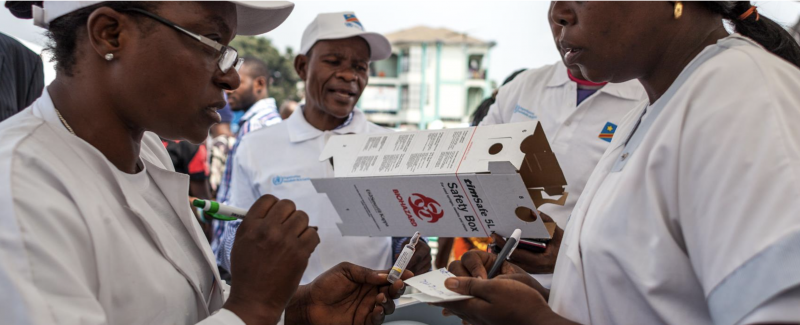
Standardization of vaccines for coronavirus disease (COVID-19)
January 12, 2021
All Regions
Coronavirus disease (COVID-19) is an infectious disease caused by a newly discovered coronavirus, SARS-CoV-2. Coronaviruses are a large family of viruses which may cause illness in animals or humans. In humans, several coronaviruses are known to cause respiratory infections ranging from the common cold to more severe diseases such as Middle East Respiratory Syndrome (MERS) and Severe Acute Respiratory Syndrome (SARS), and the most recent coronavirus disease COVID-19. WHO Director-General declared that the outbreak constitutes a Public Health Emergency of International Concern (PHEIC) on 30 January 2020 and a Pandemic on 11 March 2020.
Learn more about coronavirus disease (COVID-2019)
COVID-19 vaccines
To fast respond the COVID-19 pandemic, a broad range of candidate COVID-19 vaccines are being investigated using various technologies and platforms including: viral-vectored, protein subunit, nucleic acid (DNA, RNA), live attenuated and inactivated vaccines with some entered clinical trials. For up-to-date information of the landscape of candidate COVID-19 vaccines, please consult WHO Blueprint website.
COVID-19 vaccine standardization
Written standards
WHO secretariat has reviewed and published a list of existing WHO guidance documents adopted by the WHO Expert Committee on Biological Standardization (ECBS) and published in the Technical Report Series that are relevant to the development, production and evaluation of COVID-19 vaccines. The listing explains how current WHO written standards may provide useful guidance and information for the development, production and evaluation of candidate COVID-19 vaccines. The list is not exhaustive but focuses on evaluation of quality, safety and efficacy of vaccines. Some WHO guidelines may also be applicable for other COVID-19 interventions such as biological therapeutic products (e.g. antibodies). Details regarding the applicability of existing WHO documents for various types of vaccines such as Ebola, RSV, etc. are provided to assist national regulatory authorities and manufacturers of vaccines and other biologicals. In particular, ECBS has adopted the revised WHO Guidelines for assuring the quality, safety, and efficacy of plasmid DNA vaccines at its 71st meeting during 24-28 August 2020, which will be useful for development and evaluation of COVID-19 vaccines based on DNA technology.
Relevant WHO documents for SARS-CoV-2 vaccines and other biologicals
Measurement standards
Accurate tests are key to ensuring generating accurate data for studying COVID-19 disease and interventions. Currently a variety of molecular and serological assays are in use in worldwide settings for detection of SARS-CoV-2 infection and for measurement of antibody response to SARS-CoV-2 infection and to COVID-19 vaccines. In support of the global response to COVID-19, WHO has highlighted the importance of the availability of International Standards and/or reference reagents for anti-SARS-CoV-2 antibody and for SARS-CoV-2 RNA. The availability of International Standards will facilitate development, validation and assessment of the assays and allow for comparability of results from different assays, thus eventually facilitate and harmonize evaluation of diagnostics, vaccines, therapeutics and other products.
The WHO collaborating center for biological standardization, National Institute for Biological Standards and Control (NIBSC), UK, is leading the projects listed below with the support of other WHO Collaborating Centers and worldwide laboratories.